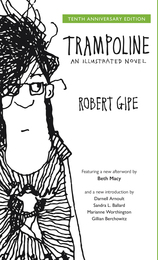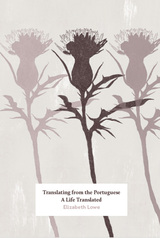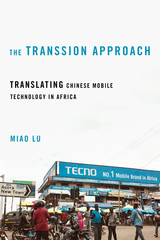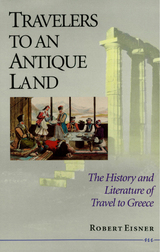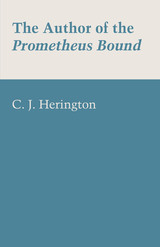
The Prometheus Bound has proved to be both the most problematic and the most influential of extant Greek tragedies. Especially during the past two hundred years the character here created has transcended the boundaries of nationality, ideology, and race: Goethe, Shelley, Marx, and—to judge by other published translations—modern Russia and China have in turn been fascinated by this being who is tortured by the gods for furthering the progress of humanity. Yet the interpretation of the play itself and its relation to the group of now-lost plays with which it was originally produced continue to arouse violent controversy. At the center of the controversy stand the questions, raised with increasing urgency during the twentieth century, whether the play is by Aeschylus at all and when it was written.
This monograph attempts a systematic answer to these questions. It first surveys the general conditions of the authenticity problem as they appeared after the redating of Aeschylus’ Supplices. Next, it catalogues in detail the stylistic, metrical, and thematic features of the Prometheus that have been supposed to tell against Aeschylus’ authorship. Finally, it suggests that these phenomena will not make sense on the assumption that the play was written by anyone other than Aeschylus, and that the date of composition must fall after the Oresteia, in the last two years of Aeschylus’ life. Given this definite context and date, many of the apparent problems of the Prometheus Bound either fall away or at least can be more precisely formulated by reference to the other extant tragedies of Aeschylus’ latest phase.
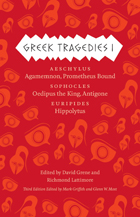
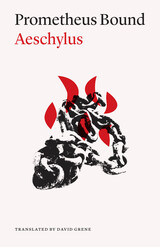
A stand-alone edition of Aeschylus’s Prometheus Bound taken from Chicago’s renowned translations of the Greek tragedies.
In the wake of the Olympian gods’ clash with the Titans, Zeus punishes his former ally and fellow deity, Prometheus, for having dared to bring knowledge to humankind. In this sole surviving play of Aeschylus’s Prometheus trilogy, we find Prometheus chained in a desolate landscape, suffering great cruelty at the hands of his fellow gods.
Drawn from the authoritative third edition of the University of Chicago Press’s Complete Greek Tragedies series, David Grene’s searing translation of Prometheus Bound is presented here in a stand-alone edition. An introduction by Glenn W. Most and Mark Griffith provides essential information about the play’s first production, plot, and reception in antiquity.
READERS
Browse our collection.
PUBLISHERS
See BiblioVault's publisher services.
STUDENT SERVICES
Files for college accessibility offices.
UChicago Accessibility Resources
home | accessibility | search | about | contact us
BiblioVault ® 2001 - 2026
The University of Chicago Press


